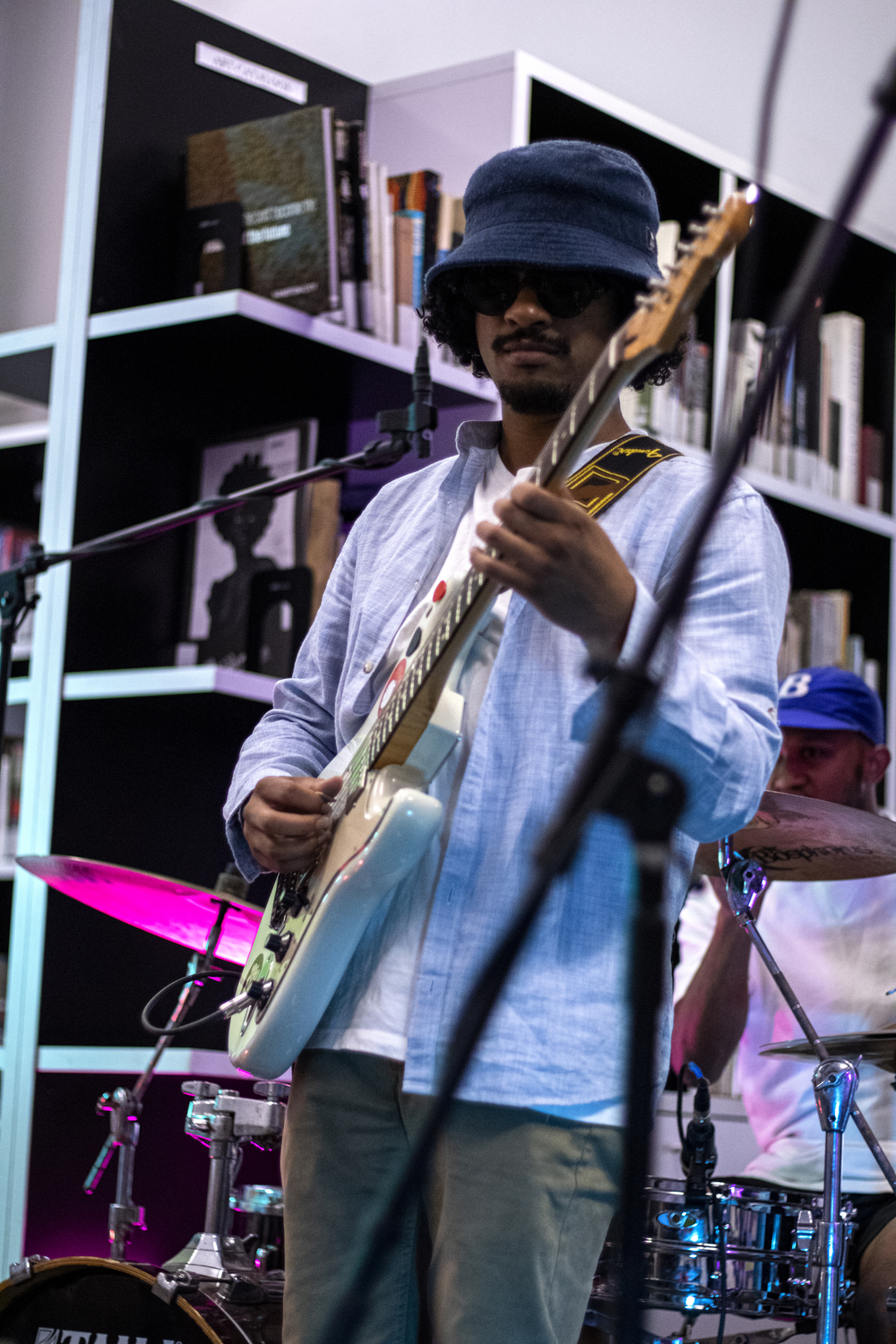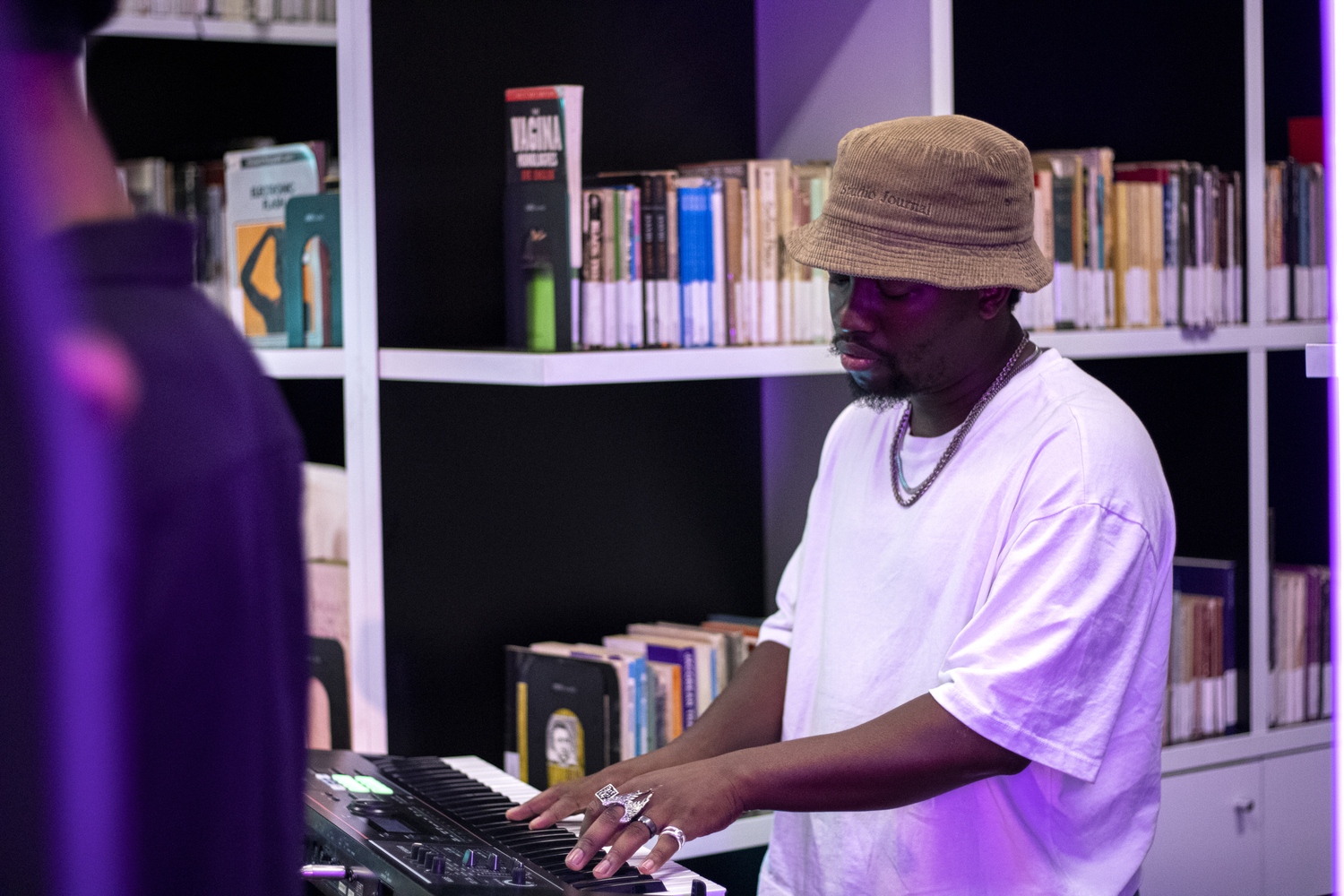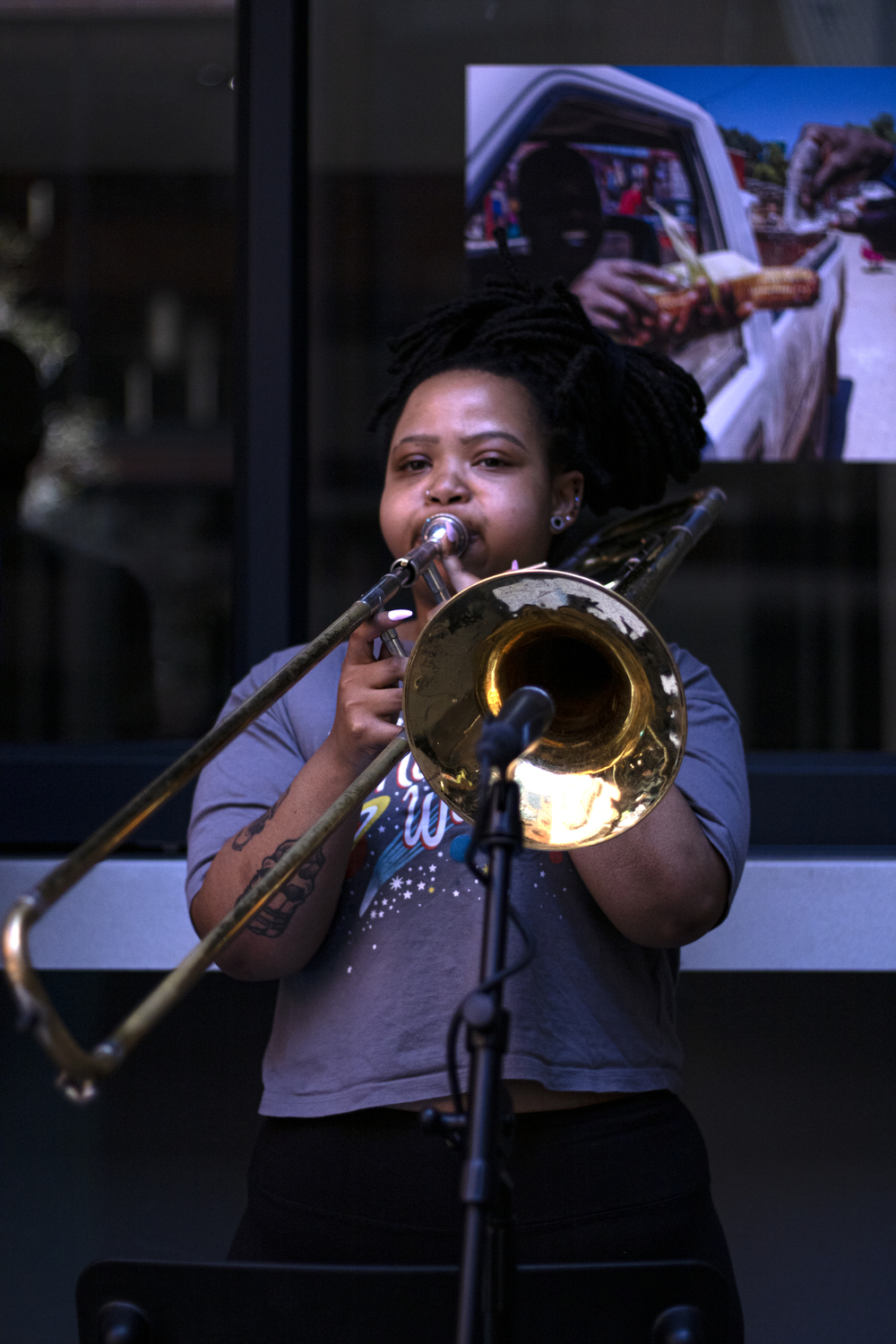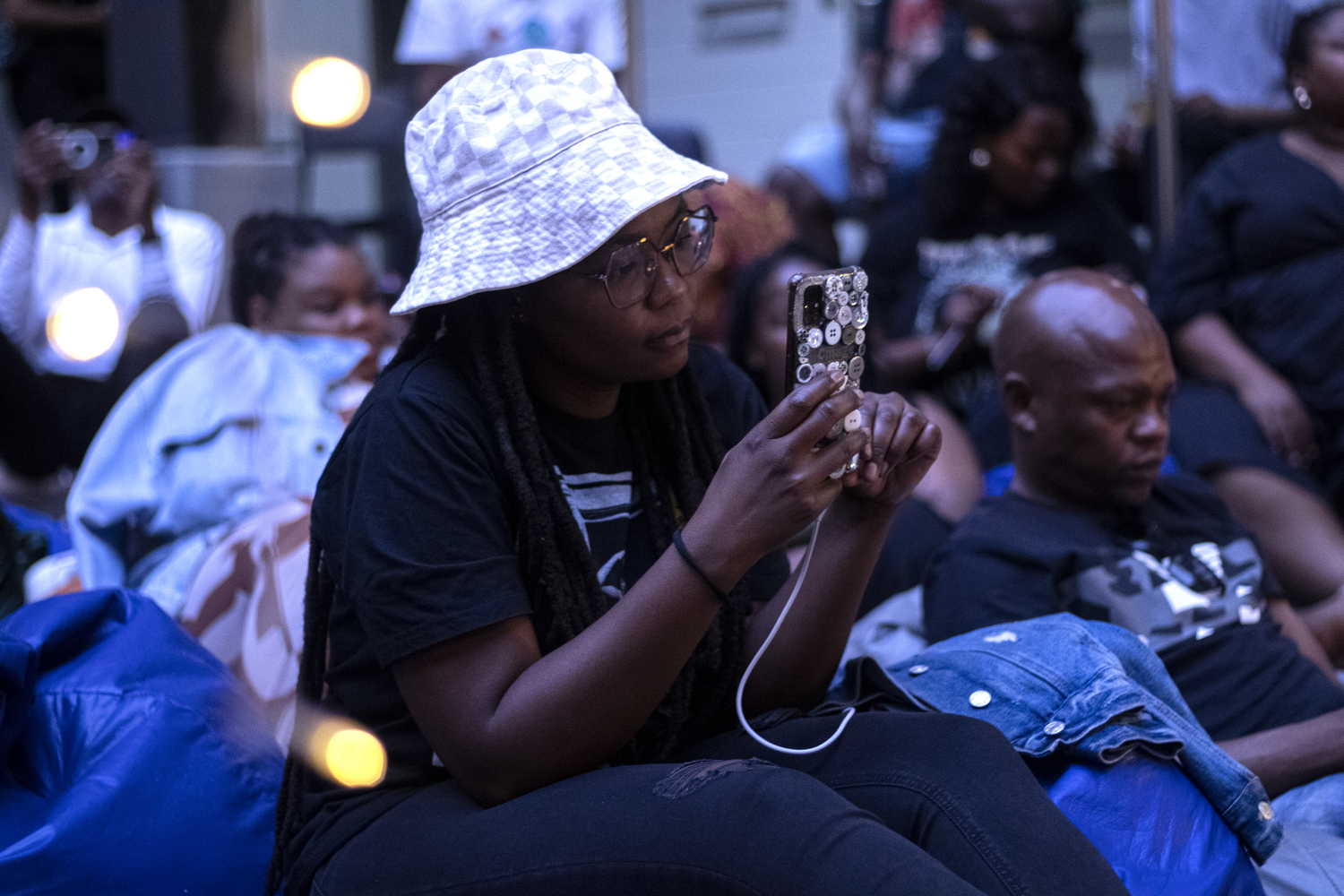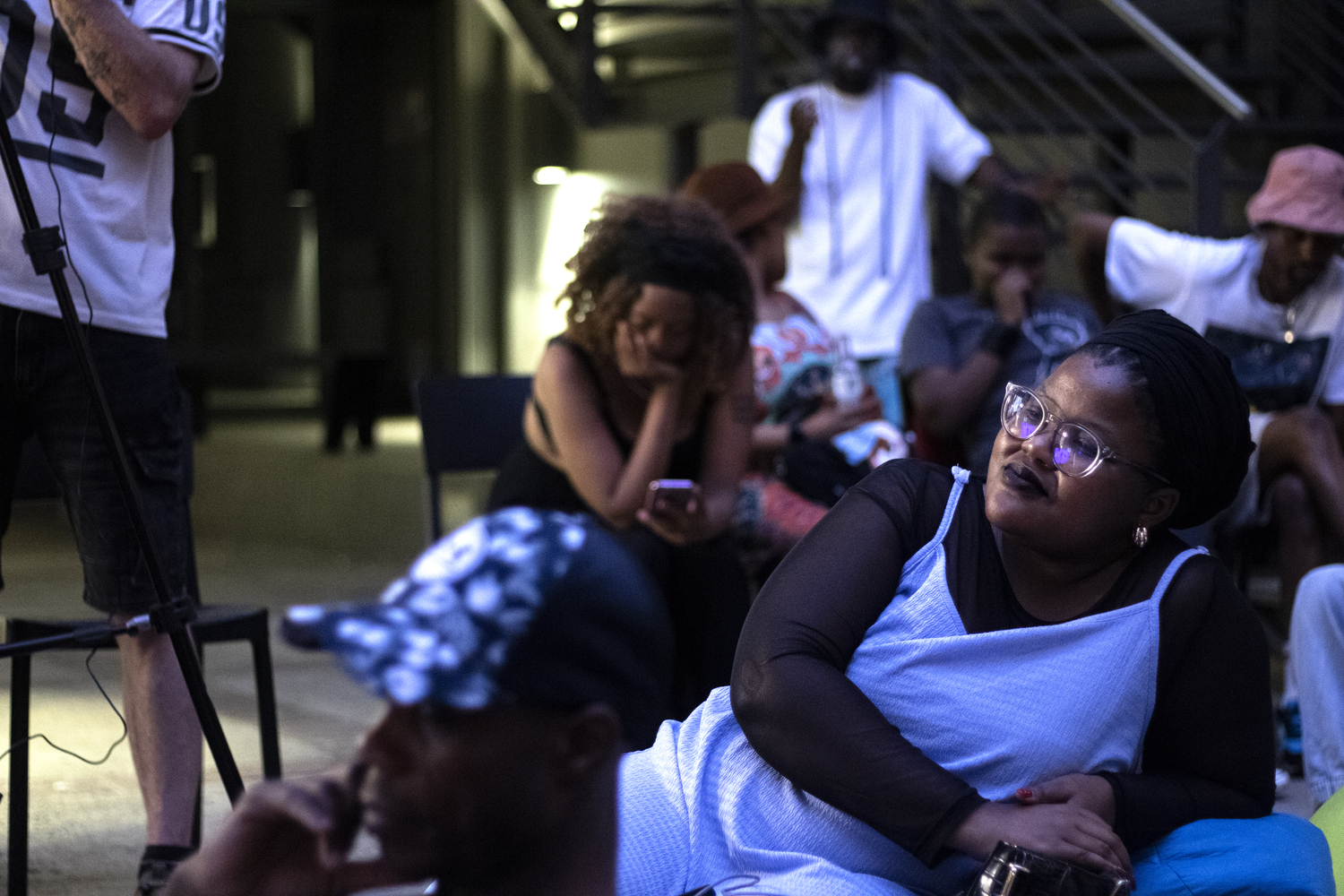Held at The Market Photo Workshop from the 1st to the 2nd of December 2023, a reflective celebration of the release of The Brother Moves On‘s first album A New Myth (2013), coincided with the passing of former President Nelson Mandela. This conceptual foundation led to a concert series, culminating in a final episode that featured live performances by artists such as Kujenga, Vivacious Voices, Yonela Mnana, Nolan Oswald Dennis, and BJ Engelbrecht.
Fostered by the Goethe-Institut, LibraryJams is modelled after the Tiny Desk Concerts series, which is an acclaimed video series, featuring live performances, by NPR Music. Originating in 2008 due to frustration with crowd noise at South by Southwest, the series began with folk singer Laura Gibson performing at Bob Boilen’s desk in Washington, D.C. The name is inspired by Boilen’s 1970s band, Tiny Desk Unit. With over 800 concerts as of October 2021, accumulating 2 billion YouTube views, the series has become a global phenomenon.
The truth is that musicians can have a far wider reach through such video-format concerts. Unlike irl concerts, videos are accessible, shareable and almost always free. So it makes sense that someone would want to replicate some of that magic and LibraryJams is the Goethe-Institut’s attempt. Initiated during the pandemic, LibraryJams is now in its third year and the series has showcased artists like Msaki, Langa Mavusa, and Zoe Modiga.
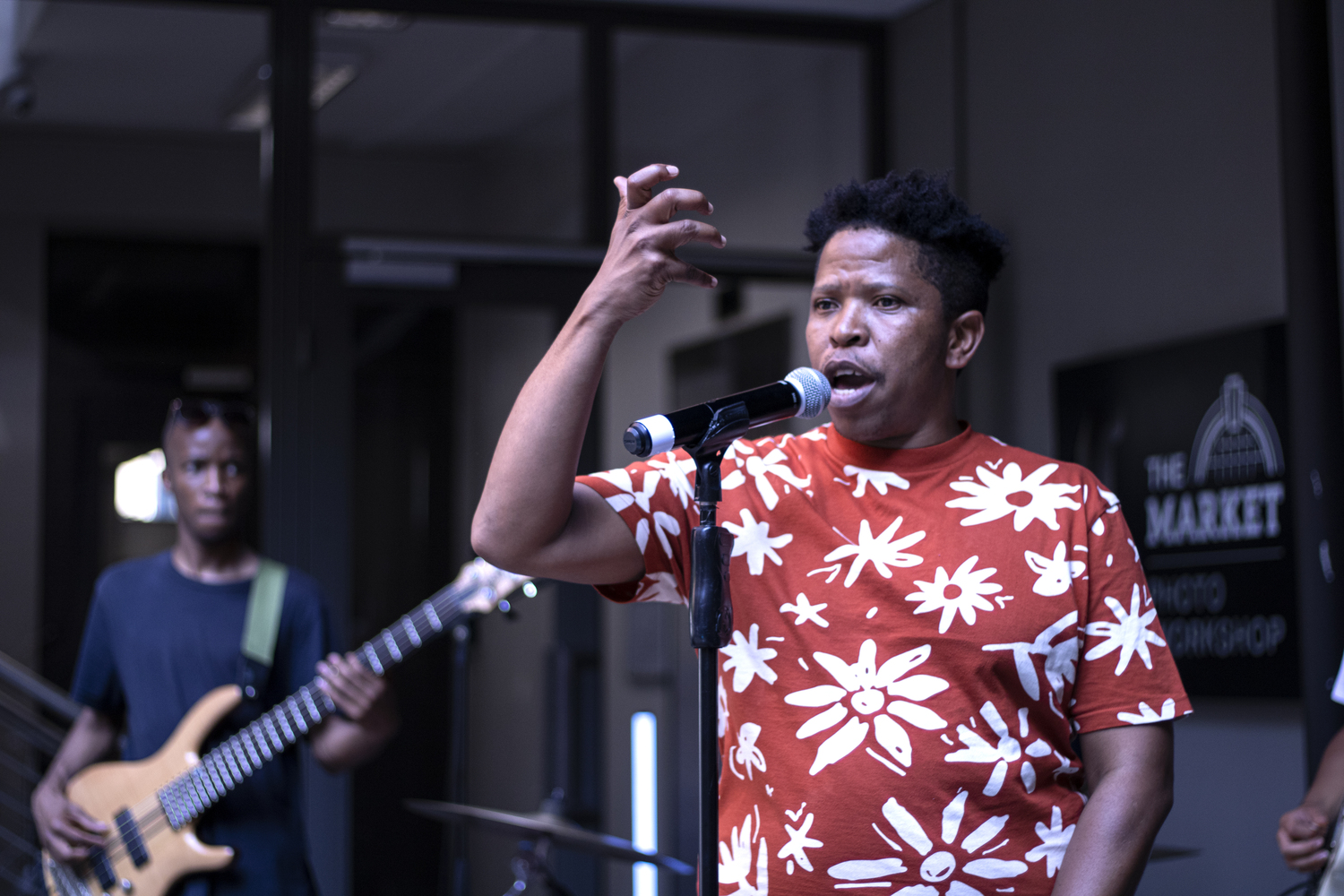
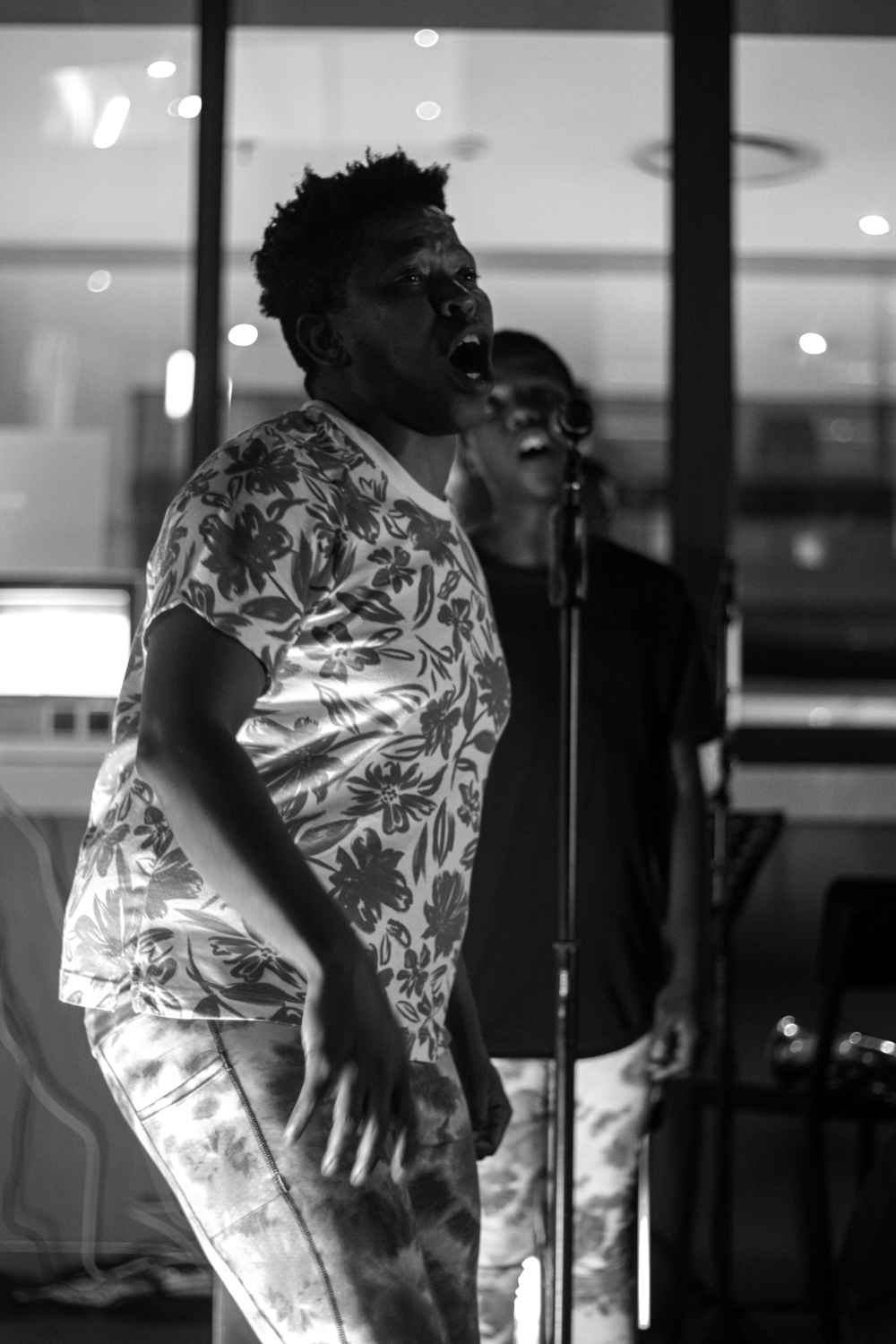 Bubblegum Club was lucky enough to be invited to witness Yonela Mnana’s collaboration with Vivacious Voices. From a music program in Katlehong, Vivacious Voices is an eight-piece choir who dazzled with its remarkable harmonies, a perfect complement to Mnana. Despite his sightlessness, Mnana was able to communicate seamlessly. We could observe the messages he was trying to convey, and this added another layer to the performance, emphasising the fact that Mnana is not just their mentor but also their leader.
Bubblegum Club was lucky enough to be invited to witness Yonela Mnana’s collaboration with Vivacious Voices. From a music program in Katlehong, Vivacious Voices is an eight-piece choir who dazzled with its remarkable harmonies, a perfect complement to Mnana. Despite his sightlessness, Mnana was able to communicate seamlessly. We could observe the messages he was trying to convey, and this added another layer to the performance, emphasising the fact that Mnana is not just their mentor but also their leader.
The prevalence of vernacular in Mnana’s music was stunning. Not only was the verbal language in vernacular but even in the way he played the piano, there was a distinct South African and almost Joburgian quality to it. Naturally, comparisons arise with other musicians like the late great Steve Kekana, provoking thoughts on a potential lineage among differently-abled musicians. They have a connection with their instruments, which reflects their roots in a manner that musicians who can visually interpret their context, never could.
Mnana managed to capture the essence of Johannesburg, moving seamlessly from melancholic tunes to bouncy bops. His song Izinyembezi Ziyasuluwa, evoked a deep emotional response within the audience. I attempted to compose myself at the start, but by the end, I found myself moved to tears. It wasn’t merely a sorrowful song; it conveyed a powerful sense of deep comfort with its lyrics that mean (roughly) “tears are for wiping away.”

The fact is these lyrics in English would mean less. What Mnana sings about is not just a feeling, saying or metaphor that can be explained within the confines of English. It can only be translated or made sense of through lived experience. The essence of Mnana’s set, or rather the core of it, resonated particularly because of its specificity in the vernacular context. The audience reactions reflected this, with some listeners bopping their heads timidly, while others yelped or wept in pleasure or pain. There was a deep unflinching recognition of the truth Mnana was telling and it moved us all in one way or another.
Yet, Mnana did not centre himself during this set. The moments when the vocalists from Vivacious Voices took solos were something special. Their vibrant voices, including sopranos, altos, and basses, exhibited remarkable depth and diversity, and that same sense of recognisability. These sounded like voices from back home. Not only that, the songs were curated with impeccable precision. Each one seemed to demand a specific voice, and each singer took the lead during a song that was precisely the right fit. When Mnana returned to the lead, he did so seamlessly, maintaining the fluidity of the performance.
Mnana’s own voice and singing style are strong and unmistakable—a beautiful blend of some of the most popular genres in South African music, including soul, gospel, and Afro-pop. His piano playing is notably jazz-focused, yet again, there’s also a distinctive vernacular quality in the way he approaches jazz. Seeing Yonela Mnana perform live at Goethe-Institut’s LibraryJams was a significant moment, especially in such an intimate setting. The experience was simultaneously heartbreaking and uplifting, and one left feeling empowered.
On the second day, The Brother Moves On performed six tracks arranged by internationally acclaimed artist Nolan Oswald Dennis for 60 audience members. The 14th episode was an opening to the release of three episodes which will be launched to the public over three weeks. The dates of the upcoming episodes 15 & 16 are [dates] and the premier of episode 14 is on the 1st of February.
